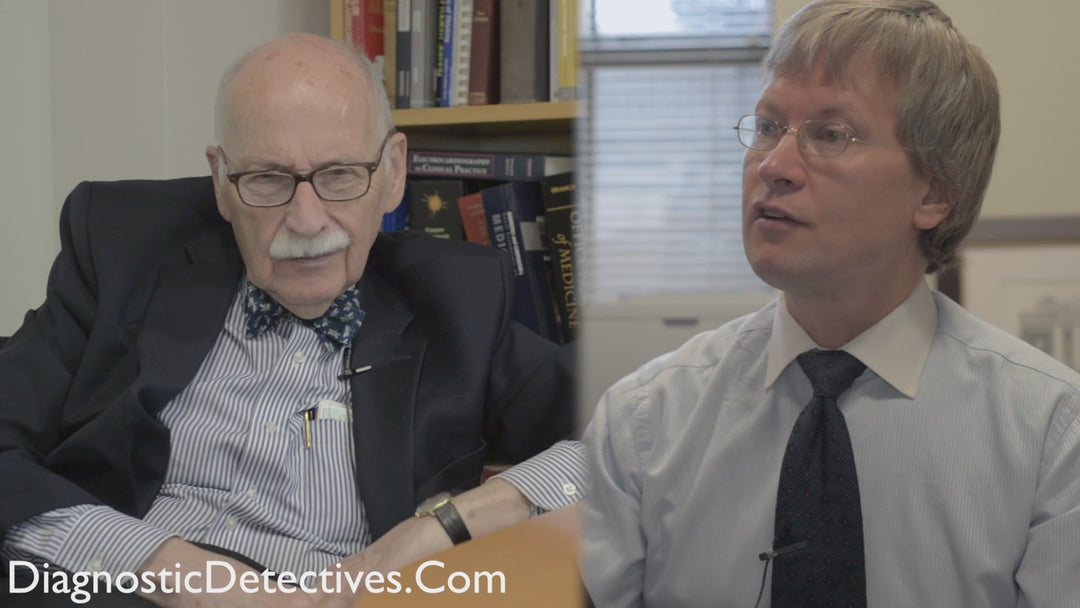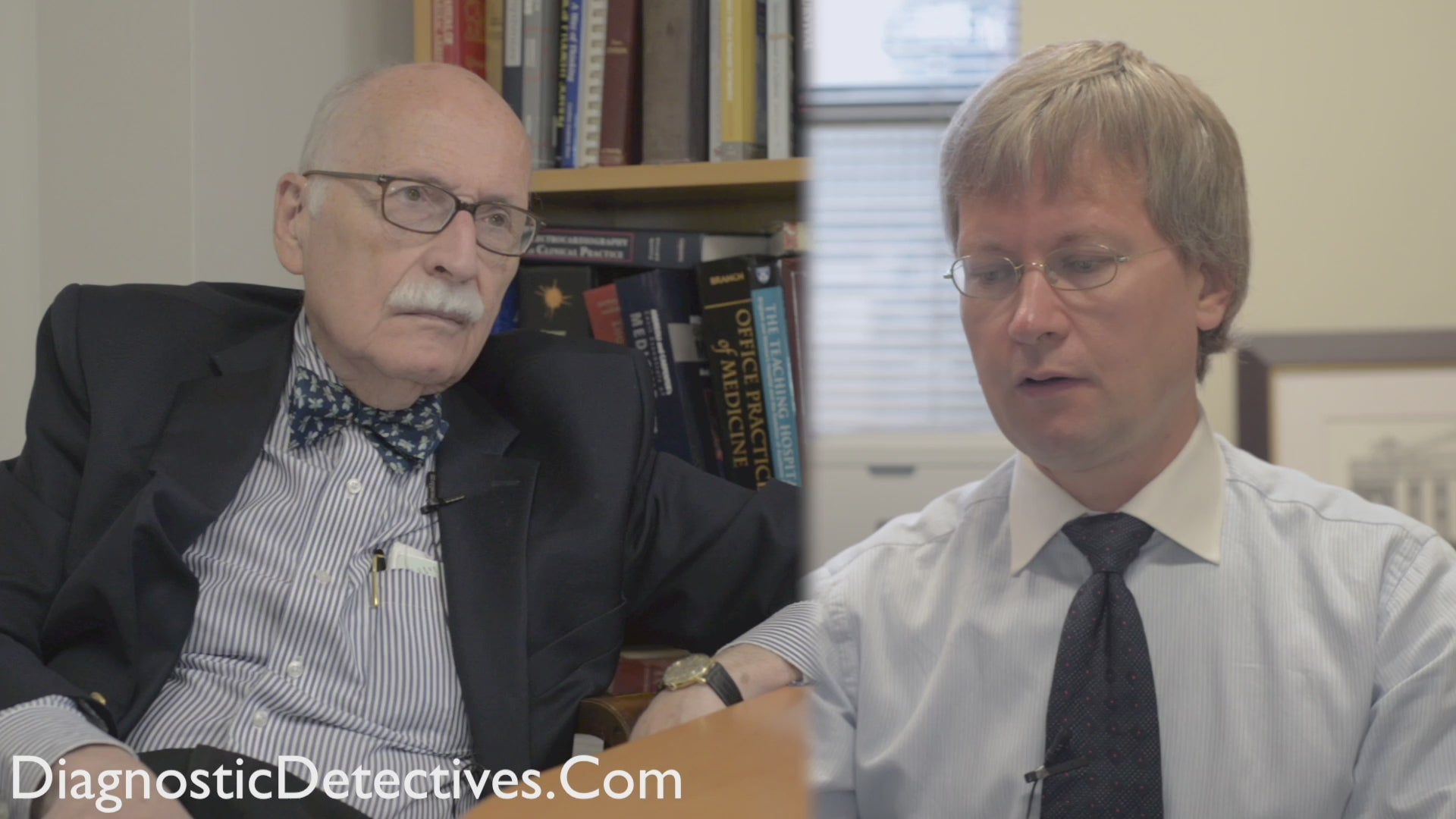Marshall Wolf 박사(MD), 의학교육 및 레지던트 훈련 분야의 선도적 전문가가 의사 근무 일정 최적화 방안을 제시합니다. 그는 수면, 환자 치료, 교육 사이의 균형이 중요함을 강조하며, 레지던트 웰빙 향상을 위해 4일 순환 근무제를 제안합니다. 이 모델은 주당 80시간 근무 한도를 지키면서도 환자 치료의 연속성을 유지합니다. 또한 Wolf 박사는 레지던트 수면 요구량에서 나타나는 "소방관 효과(fireman effect)"를 설명하고, 현대 수련의들을 위한 교수 시간 부족 문제도 함께 다룹니다.
수면과 환자 치료 개선을 위한 전공의 근무 일정 최적화
목차 바로가기
- 전공의 근무 일정의 어려움
- 전공의 수면 필요성에 관한 연구
- 환자 치료 담당과 지도 간 균형
- 전공의 훈련을 위한 4일 순환 모델
- 새 전공의 일정 시행의 장애물
- 전공의 교육 시간 감소
- 전체 대본
전공의 근무 일정의 어려움
현대 의학 전공의 프로그램은 상당한 일정상의 어려움에 직면합니다. Marshall Wolf 박사(MD)는 의료 위원회들이 종종 “데이터 없이” 규정을 만든다고 지적합니다. 이러한 규정은 구조적으로 취약한 훈련 프로그램으로 이어질 수 있습니다. Anton Titov 박사(MD)는 이러한 제약 속에서 젊은 의사들이 성장할 수 있도록 돕는 방법을 모색합니다. 수면 요구, 환자 담당, 교육적 필요 사이에는 긴장이 존재합니다.
전공의 수면 필요성에 관한 연구
연구는 전공의의 수면 요구에 대한 중요한 통찰을 제공합니다. Marshall Wolf 박사(MD)는 비당직일에는 2시간의 수면으로 충분할 수 있다는 문헌을 인용합니다. 그러나 “소방관 효과”가 이 공식을 크게 바꿉니다. 잠재적인 응급 호출이 예상될 때 전공의는 최소 4시간의 수면이 필요합니다. Wolf 박사의 프로그램은 이 최소 수면 기준을 적용했습니다. 이 접근법은 전공의들이 다음 날 효과적으로 업무를 수행할 수 있도록 보장했습니다.
환자 치료 담당과 지도 간 균형
환자 안전은 적절한 지도와 충분한 담당 인력에 달려 있습니다. Marshall Wolf 박사(MD)는 일부 현대 일정이 교육 기회를 줄인다고 경고합니다. 전공의들은 경험 많은 의사들과 증례를 논의할 시간이 필요합니다. 수면 부족 의사들은 의료 과오 이상의 심각한 위험에 직면합니다. Marshall Wolf 박사(MD)는 지친 상태로 귀가하는 전공의들이 자동차 사고를 경험할 가능성이 두 배 높다고 지적합니다.
전공의 훈련을 위한 4일 순환 모델
Marshall Wolf 박사(MD)는 혁신적인 4일 순환 일정을 개발했습니다. 이 모델은 여러 전공의 훈련 어려움을 동시에 해결합니다:
- 1일차: 오전 7시부터 오후 10시까지 입원 환자 담당, 병원 내 보호 수면
- 2일차: 오전 7시부터 오후 5시까지 정규 병원 업무
- 3일차: 오전 7시부터 오후 5시까지 지속적인 환자 치료
- 4일차: 병원 업무가 완전히 없는 휴무일
이 일정은 입원의 중요한 첫 3일을 담당합니다. 주간 근무 시간을 80시간 미만으로 유지하면서 보호되지 않은 야간 당직을 제거합니다.
새 전공의 일정 시행의 장애물
의료 위원회들은 종종 혁신적인 일정 접근법에 저항합니다. Marshall Wolf 박사(MD)는 그의 4일 모델에 대한 포괄적인 연구를 준비했습니다. 이 연구는 수면 질, 환자 결과, 직원 만족도를 측정할 예정이었습니다. 이 엄격한 접근법에도 불구하고, 의료 위원회는 시행 허가를 거부했습니다. Wolf 박사는 의학 분야에서 이러한 증거 없는 결정 과정에 대해 좌절감을 표현합니다.
전공의 교육 시간 감소
현대 전공의 구조는 교육 시간을 크게 줄였습니다. Marshall Wolf 박사(MD)는 전공의 활동에 관한 충격적인 데이터를 공유합니다. 훈련생들은 매일 약 5시간을 컴퓨터 작업에 소비합니다. 직접적인 환자 접촉에는 약 1.5시간만 할애합니다. 이 불균형은 전공의들을 “가르침을 받을 여유가 없는” 상태로 만듭니다. Anton Titov 박사(MD)는 환자 치료 기준을 유지하면서 교육 기회를 회복할 해결책의 필요성을 논의합니다.
전체 대본
Anton Titov 박사(MD): 현대 의학에서 훈련 중인 의사들에게 가장 좋은 일정은 무엇인가요? 젊은 의사들이 행복하면서도 최선을 다할 수 있도록 어떻게 보장할까요?
Marshall Wolf 박사(MD): 저는 일정에 대해 많은 문제점을 가지고 있습니다. 일부는 의료 위원회 때문입니다. 그들은 훈련 프로그램에 일정 측면에서 해야 할 것과 하지 말아야 할 것을 지시합니다. 의료 관료들은 종종 데이터 없이 그렇게 합니다. 그들은 상황을 연구하지 않았습니다.
그래서 그들은 최소한 제 생각에는 말이 되지 않는 훈련 프로그램들을 만듭니다.
전공의 수면 문제로 돌아가겠습니다. 우리가 알아내려고 했던 것은 젊은 의사가 다음 날 잘 수행하기 위해 몇 시간의 수면이 필요한지였습니다. 문헌에 데이터가 있었고, 그 데이터는 꽤 흥미로웠습니다.
훈련 중인 의사들이 다음 날 잘 수행하기 위해 2시간의 수면으로 충분하다는 것이 밝혀졌습니다—당직이 아닐 때는요. 이것은 “소방관 효과”라고 불리는 것입니다. 2시간 자고 호출되지 않을 수 있습니다; 그것으로 충분합니다. 그러나 소방관처럼 응급 상황에 호출될 가능성이 있다면, 4시간의 수면이 필요합니다.
우리는 훈련 프로그램을 재설계하여 사람들이 당직이 아닐 때도 최소 4시간의 수면을 취하도록 했습니다. 그것은 그들이 다음 날 잘 수행할 수 있도록 충분해야 합니다.
흥미롭게도—그리고 제가 훈련시킨 젊은이들과 그들의 에너지 수준에 대한 찬사로—그들은 종종 4일마다 한 번씩의 일정에 휴일의 즐거운 활동으로 인해 수면 부족 상태로 도착했습니다. 그때 그들은 충분한 수면을 취하지 못했습니다.
일정 측면에서, 저는 새로운 일정들에 대해 두 가지 이유로 우려합니다. 첫째, 그들은 젊은 의사들을 열악한 담당 인력 상태로 남깁니다. 젊은 의사가 약간의 수면을 취하기를 바라지만, 훈련 중인 의사는 더 경험 있는 전공의나 스태프 의사와 환자에 대해 논의할 기회도 가져야 합니다. 일부 새로운 프로그램들은 그렇게 하지 않습니다.
둘째, 일부 일정들은 사람들을 수면 부족 상태로 집에 보냅니다. 수면 부족 의사들이 자동차 사고를 경험할 가능성이 두 배 높다는 것을 우리는 알고 있습니다.
흥미로웠습니다—제 막내 아들이 인턴이었을 때 그가 겪는 것을 보았을 때, 저는 우리 의학 전공의 프로그램 운영을 그만둔 상태였습니다. 저는 이러한 많은 문제들을 다룰 것이라고 생각하는 우리 프로그램을 위한 새로운 일정을 생각해냈습니다.
의료 위원회는 제가 설계한 전공의 일정을 시도하는 것을 허용하지 않았습니다, 비록 우리가 수면, 임상 결과, 환자 만족도, 간호사 만족도에 미치는 영향을 측정할 준비가 되어 있었음에도 불구하고요. 우리는 결정적인 연구를 수행할 준비가 되어 있었지만, 의료 위원회는 우리가 그것을 하도록 허용하지 않았습니다.
저는 약간 낙담했습니다. 그들은 현재 이러한 문제들 중 일부를 살펴보기 시작했지만, 그들이 해야 하는 것보다 덜 제한적인 방식으로요. 의학 전공의 일정 분야에서 가설을 연구하고 검증하는 것으로 경력을 쌓은 사람들이 선언적 진술을 하고 검증하지 않는 것이 저를 괴롭힙니다.
제가 4일 일정에서 하고 싶었던 것은 이것입니다: 첫째 날, 오전 7시에 병원에 옵니다—그것은 귀하의 입원 환자 담당일입니다. 오후 10시까지 환자를 받아들이고, 자정에 취침하여 병원에서 잡니다. 집에 가지 않았습니다.
다음 날, 오전 7시부터 오후 5시까지 병원에서 보냅니다. 셋째 날, 동일합니다—오전 7시부터 오후 5시까지. 넷째 날, 완전히 휴무이고 병원에 오지 않습니다.
현재 미국 병원의 평균 체류 기간은 약 3일입니다. 훈련 중인 의사들이 처음 3일 동안 거기 있다면, 대부분의 흥미로운 일들이 일어날 때 그곳에 있습니다. 그들은 자신의 환자의 질병과 치료가 발전하는 것을 봅니다.
그러나 총 시간은 당시 제안되었던 80시간보다 적었습니다. 보호 수면 시간 없는 밤이 없었습니다. 저는 그것이 훌륭한 일정이라고 생각했지만, 그들은 우리가 그것을 시험해보도록 허용하지 않았습니다.
Anton Titov 박사(MD): 어딘가에서 그것을 시험해볼 수 있다고 생각하시나요?
Marshall Wolf 박사(MD): 그들은 여기서 그러한 일들 중 일부를 시작하고 있습니다. 그러나 저는 우리 훈련 프로그램에서 이 전공의 일정을 시험해봐야 한다고 생각했습니다. 그것은 저를 괴롭혔습니다 왜냐하면 저는 우리 프로그램을 더 좋게 만들기 위한 많은 훌륭한 아이디어들을 가지고 있었기 때문입니다.
저는 저와 함께 훈련받는 젊은이들에게 물었습니다: “뭐가 고장 났나? 어떻게 고치는가?” 그런 다음 우리는 새로운 제안들을 논의하고 시도했습니다. 우리는 항상 실험이 효과가 있었는지 추적했습니다. 약 절반에서 3분의 2의 경우 효과가 있었습니다; 3분의 1의 경우는 효과가 없었습니다, 비록 우리가 그것이 효과가 있을 것이라고 확신했더라도요.
전공의 시간을 살펴보는 사람들이 그들이 제안하는 것을 검증하는 데 동일한 엄격한 접근법을 가지지 않는 것이 저를 괴롭힙니다. 제안된 일정이 실제로 훈련 중인 의사들에게 더 나은 것을 만드는지 항상 평가되지 않습니다.
제가 새로운 훈련 일정들에 대해 걱정하는 또 다른 것은 젊은 의사들이 가르침을 받을 충분한 시간을 거의 가지지 못한다는 것입니다. 업무일이 너무 바쁩니다. 특히 현재, 훈련 중인 의사들은 컴퓨터에 많은 시간을 소비합니다.
전공의들이 하루에 약 5시간을 컴퓨터에 보내고 하루에 겨우 1.5시간만 환자와 대면한다는 여러 연구 결과를 알게 되어 충격을 받았습니다. 그들은 너무 바빠서 가르침을 받을 시간이 없습니다. 우리는 이것을 어떻게 해결할지 알아내야 합니다. 저는 그것에 대해 생각하고 있지만, 해결책은 없습니다.
Anton Titov 박사(MD): 현대 학술 병원의 강렬한 환경에서 내과 및 외과 전공의들을 위한 수면과 업무 일정을 어떻게 균형잡나요?
Marshall Wolf 박사(MD): 그게 문제입니다.





